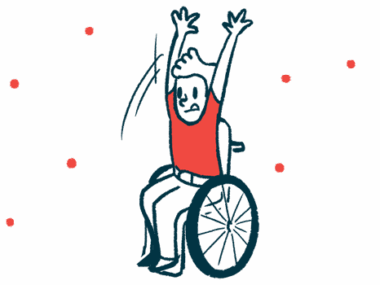AveXis Secures $65 Million New Financing Earmarked To Advance Spinal Muscular Atrophy (SMA) Research
Written by |

Dallas-based gene therapy platform company AveXis Inc., a leader in developing treatments for rare and life-threatening neurological genetic diseases, has announced completion of a $65 million Class D common stock financing. The proceeds will be used to advance the company’s ongoing Spinal Muscular Atrophy (SMA) research and clinical programs and to expand key operational capabilities.
SMA) is an autosomal recessive motor neuron disease, caused by a genetic defect in which the gene Survival Motor Neuron (SMN1) is mutated in persons with SMA. This mutation reduces the level of functional SMN protein in the patient. In the absence of SMN protein, motor neurons begin dying, and degeneration of motor neurons in the spinal cord and brainstem leads to muscle weakness, often observed as weakness in controlling head and neck movements. Muscles controlling limb movement, breathing, and swallowing are also affected.
SMA Type 1 is the leading genetic cause of infant mortality and is the second-most common autosomal recessive genetic disorder. The gene for SMN is carried on chromosome 5, and to be inherited, both parents must be carriers (have one copy of the mutated SMN1 gene). Approximately one in 40 persons in the U.S. is a carrier of mutated SMN1 gene, and SMA occurs in approximately one of every 6,000-10,000 births.
Spinal Muscular Atrophy is generally classified into four types based on an individuals age of onset and highest level of motor function. In the case of a mutated SMN1 gene, the disease severity of SMA is modified by the copy number of the SMN2 gene. A mutated SMN1 gene and no copy of the SMN2 gene will result in embryonic lethality.
Type I (also known as Werdnig-Hoffman disease)
Type I SMA is early-onset, with symptoms occurring before 6 months of age. Accounting for 58% of SMA incidence at birth, this most severe form of SMA results in an inability to sit without support, difficulty in breathing and swallowing, and is lethal for 90% of patients by 2 years of age.
Type II (also known as Dubowitz disease)
Type II SMA onset occurs between 6-18 months of age. Accounting for 29% of SMA incidence at birth, patients often have 3 copies of the SMN2 gene. These patients vary in how rapidly the disease progresses, but generally patients can sit but not stand upright, body muscles are weakened, and respiratory system problems are a major concern. Life expectancy is somewhat reduced, but many patients live well into adulthood with careful medical attention.
Type III (also known as Kugelberg-Welander disease, juvenile SMA)
Type III SMA is juvenile onset, with symptoms appearing after 18 months of age. Life expectancy is near normal, but patients may lose the ability to walk without assistance and develop scoliosis.
Type IV (adult onset)
Adult onset SMA is very rare. Affecting patients abilities at 30-40 years of age, life expectancy is normal, but the disease may require use of a wheelchair for mobility.
At this time, there is no treatment for spinal muscular atrophy (SMA). Current treatment for SMA patients is palliative. For patients with Type 1 and Type 2 SMA, respiratory care is critical. Assistive technology for mobility and scoliosis are available.
AveXis and other companies are in various phases of research and development with treatments for SMA. Some of the potential pathways to treatment are: gene therapy, stem cell therapy, SMN2 upregulation, SMN2 splicing and SMN stabilization.
“SMA is a devastating genetic disease with no approved treatments,” comments Taymour Tamaddon, portfolio manager, T. Rowe Price Health Sciences Fund. “We believe the AveXis program holds great promise for patients suffering from SMA and we are pleased to support the company.”
AveXis’ new Class D financing was led by funds and accounts managed by T. Rowe Price Associates, Inc., a new investor in AveXis. Existing investors, including Deerfield Management, Roche Venture Fund and Venrock, also participated in the financing, as did new participants, including Janus Capital Management LLC, Adage Capital Management, L.P., RA Capital Management, QVT Financial LP, Rock Springs Capital Management LP, Foresite Capital Management, LLC, RTW Investments, LLC and Boxer Capital of Tavistock Life Sciences.
 “We are pleased to have such a robust syndicate of well-respected investors, led by T. Rowe Price funds and accounts, join with our existing investors in this financing. This points to the broad enthusiasm surrounding our SMA clinical program and the progress we have made to date,” says Sean P. Nolan, president and chief executive officer, AveXis, in a release. “We are now well-positioned to continue development of our novel gene therapy for patients suffering from SMA Type 1, a rare genetic disease and the most common genetic cause of infant mortality.”
“We are pleased to have such a robust syndicate of well-respected investors, led by T. Rowe Price funds and accounts, join with our existing investors in this financing. This points to the broad enthusiasm surrounding our SMA clinical program and the progress we have made to date,” says Sean P. Nolan, president and chief executive officer, AveXis, in a release. “We are now well-positioned to continue development of our novel gene therapy for patients suffering from SMA Type 1, a rare genetic disease and the most common genetic cause of infant mortality.”
Several clinical trials are in progress with therapies designed to affect the progression of SMA, often for Type 1 and Types 2/3 patients. A list of clinical trials targeting SMA can be accessed at https://ClinicalTrials.gov
AveXis currently has a Phase 1 dose-ranging clinical trial ( — ClinicalTrials.gov Identifier: NCT02122952) utilizing scAAV9.CB.SMN in patients with SMA Type 1 underway at Nationwide Children’s Hospitalin Columbus, Ohio, which received IND approval and Fast Track designation from the U.S. Food and Drug Administration (FDA) in September 2013. “Fast track,” refers to a hastened phase in the drug review and approval process, and signifies that the FDA can expedite the review and development of the scAAV9.CB.SMN gene therapy product which, in preclinical work, has been shown to slow the progression of SMA symptoms.
In October, 2014, the U.S. Food and Drug Administration (FDA) granted orphan drug designation to AveXis’a scAAV9.CB.SMN product chariSMATM, to treat Spinal Muscular Atrophy patients. Orphan Drug Designation is granted by the FDA Office of Orphan Drug Products to drugs intended to treat rare diseases or conditions affecting fewer than 200,000 people in the U.S. There are estimated to be between 25,000 and 50,000 SMA patients in the U.S., Europe and Japan.
The first patient subject was enrolled and successfully injected with about 400 trillion viral particles containing the SMN transgene by Nationwide Children’s Hospital on May 13, 2014, and the trial’s estimated study completion date is June, 2017. As of October, 2014, no complications from the therapy had been recorded, and two additional infants in the low dose cohort had been dosed.
The purpose of this trial is to evaluate safety and efficacy of intravenous delivery of self-complementary scAAV9.CB.SMN as a treatment of Spinal Muscular Atrophy type 1 (SMN1). This gene transfer therapy introduces fully-functioning copies of a survival motor neuron (SMN) gene. The copied gene is intended to supplement the body’s production of SMN protein using an adeno-associated viral vector that carries the SMN gene. Following this treatment, the company believes that the cell machinery could then continually produce SMN protein from the new copies of the SMN gene.
AveXis also operates a website specifically focused on SMA: https://www.smastudy.org — an integral element to AveXis’s multi-pronged effort to increase awareness of ongoing and upcoming SMA treatment clinical trials. While the company’s corporate website is centered on AveXis, the SMA-focused website’s role is to communicate directly with parents of children with SMA who are looking for information and treatment options.
AveXis is working with leading European medical research centers on sussing out the financial and regulatory hurdles that need scaling in order to initiate a mirror image chariSMATM trial in Europe in 2015. The company is also reaching out to domestic and international foundations and patient advocacy groups to increase overall awareness of their clinical trials.
The company’s name, AveXis, which has both scientific and mythological meaning. is derived from scientific terms involved in the company’s work plus the name of a mythological figure. Hence, Av = adeno-associated virus (AAV) serotype 9; ve = vector; X = DNA helix; is = Isis, the goddess of children, nature and magic, who is particularly symbolic since the company’s initial focus, SMA, affects children, and because they hope to rework nature with a little magic (in the form of brilliant scientific discovery) to treat it.
Cooley LLP served as legal advisor to the company and Jefferies LLC acted as financial advisor to the company for the transaction.
For more information about AveXis, visit:
https://www.avexisbio.com
Sources:
AveXis Inc.
ClinicalTrials.gov
Nationwide Children’s Hospital
Image Credit:
AveXis Inc.



